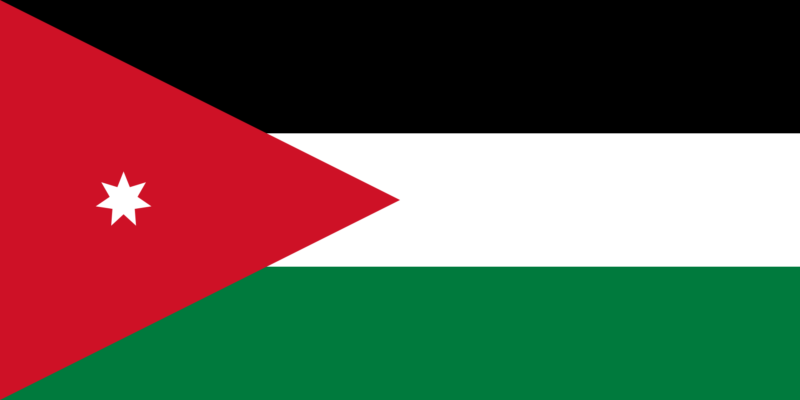Danger Levels and Points
Danger Levels:
– Border Areas with Syria and Iraq
Level 2: Refrain from non-essential travel (Continuing)
– Other Areas
Level 1: Exercise caution (Continuing)
Points:
– In the border areas with Syria and Iraq, while security on the Jordanian side is relatively stable, the situation remains unstable on the Syrian and Iraqi sides. Avoid approaching these border areas.
– There is a risk of terrorism in tourist spots and urban areas, with shopping malls and restaurants frequented by foreigners being potential targets. Remain vigilant regarding terrorist threats, stay updated with the latest relevant information, and take measures to avoid being caught in unforeseen situations.
Details
1. Overview
(1) The security situation within Jordan is generally stable; however, there remains a risk of terrorism due to the impact of the Israel-Palestine conflict and the situation in Syria. The “Islamic State of Iraq and the Levant” (ISIL) has lost control of territories in Syria and Iraq and its power has weakened, but there is still a possibility of terrorism by its supporters or others. Notable recent terrorist incidents include:
– August 2018: A bombing incident in Al-Balqa Governorate’s Fuheis City.
– February 2019: A security personnel attack during a terrorist raid in Al-Balqa Governorate’s Salt City.
– November 2019: An attack on tourists with a knife at the Roman ruins in Jerash Governorate.
For more details on terrorism and kidnapping in Jordan, refer to the “Terrorism and Kidnapping Situation” page: [Terrorism and Kidnapping Situation](https://www.anzen.mofa.go.jp/info/pcterror_054.html).
(2) Since October 2023, protests and demonstrations against Israel have been occurring throughout Jordan, especially on Fridays and Saturdays. Some participants have clashed with police.
(3) Additionally, disputes between individuals have escalated into tribal conflicts, involving firearms and resulting in casualties. Caution is needed to avoid getting involved.
2. Regional Conditions
(1) Border Areas with Syria
Level 2: Refrain from non-essential travel (Continuing).
In January 2024, a U.S. military base located at the Syria-Iraq border in northeastern Jordan was attacked by armed groups using drones, resulting in the deaths of three U.S. soldiers and multiple injuries. The U.S. retaliated in February 2024 against Iran-backed armed groups in Syria and Iraq, potentially escalating tensions further.
In July 2018, the Syrian government regained control over the Jordanian border area, and checkpoints at Jaber-Naseeb border reopened in mid-October 2018. The Ramtha border has also partially resumed operations. However, rules for border crossings are fluid and future operations remain uncertain. Syria has issued a Level 4 evacuation advisory, and security in the border area remains unstable with frequent drug and weapons smuggling incidents and armed clashes between smugglers and Jordanian forces.
(2) Border Areas with Iraq
Level 2: Refrain from non-essential travel (Continuing).
In January 2024, an armed group targeted a U.S. military base near the Jordan-Iraq border with a drone attack (refer to (1) above). The security situation in Iraq remains unstable, and caution is needed regarding activities by individuals or groups responding to the Gaza situation.
For both (1) and (2) regions, avoid non-essential travel. If travel is necessary, exercise special caution and implement adequate safety measures.
(3) Other Regions
Level 1: Exercise caution (Continuing).
Since October 7, 2023, protests related to the Israel-Palestine conflict have been held across Jordan, particularly in urban areas such as Amman (including downtown and near Israeli and U.S. embassies) and Aqaba. Some participants have become radicalized, leading to arrests.
– Amman
Since the 2005 bombings, there have been no large-scale terrorist incidents in Amman.
– Areas Surrounding Amman
– August 2018: A bombing targeted security vehicles at a music festival in Fuheis, resulting in two security personnel deaths and five injuries.
– August 2018: A terrorist raid in Salt City led to gunfights and explosions, resulting in four security personnel deaths and over 20 injuries.
– February 2019: Two bombings in agricultural areas of Salt City caused casualties among civilians and security personnel.
– November 2019: A knife attack by a radicalized individual at the Roman ruins in Jerash injured eight people, including four foreign tourists and two security personnel.
– Northern Jordan
– May 7, 2017: Tribal clashes in Irbid Governorate resulted in one death and several injuries over a month.
– February 15, 2019: A confrontation in Ajloun Governorate’s Anjara District between residents and security forces during a crackdown resulted in one death and injuries on both sides.
– Southern Jordan
– December 2022: A police officer was killed during a demonstration in Ma’an Governorate, followed by a gunfight between security forces and suspects, resulting in three security personnel deaths.
3. Precautions for Stay
For detailed safety measures, refer to the following resources:
– [Safety Measures]

– [Safety Guide]
https://www.jordan.emb-japan.go.jp/files/100658375.pdf
(1) When traveling abroad, inform family, friends, and workplace of your itinerary and contact details. Also, check safety information for neighboring countries like Syria, Iraq, Saudi Arabia, and Israel.
(2) Stay updated with the latest security and safety information from local news, overseas safety websites, the Japanese embassy in Jordan, and local authorities.
(3) Terrorism can occur worldwide, including in Europe, Asia, and other regions where Japanese travelers frequent. Be aware of the possibility of terrorism, including attacks by individuals or on soft targets such as public transport. Continuously update yourself with the latest security information and take appropriate safety measures.
(4) Be cautious around government buildings, foreign embassies, and places where foreigners gather (e.g., foreign hotels, shopping malls, nightclubs). Also, be cautious around mosques, refugee camps, and areas where protests are likely to occur. Limit time spent in these areas, avoid peak times, and prioritize your safety.
(5) Although crime rates decreased during the COVID-19 pandemic, they have increased with the return to normal social activities. Follow the “Safety Guide” for up-to-date information and maintain a high level of vigilance. Crime rates are highest in Amman but also occur in tourist areas such as the Dead Sea, Jerash ruins, Petra, and Aqaba. Be cautious of potential troubles or crimes involving local guides or shopkeepers.





Comment